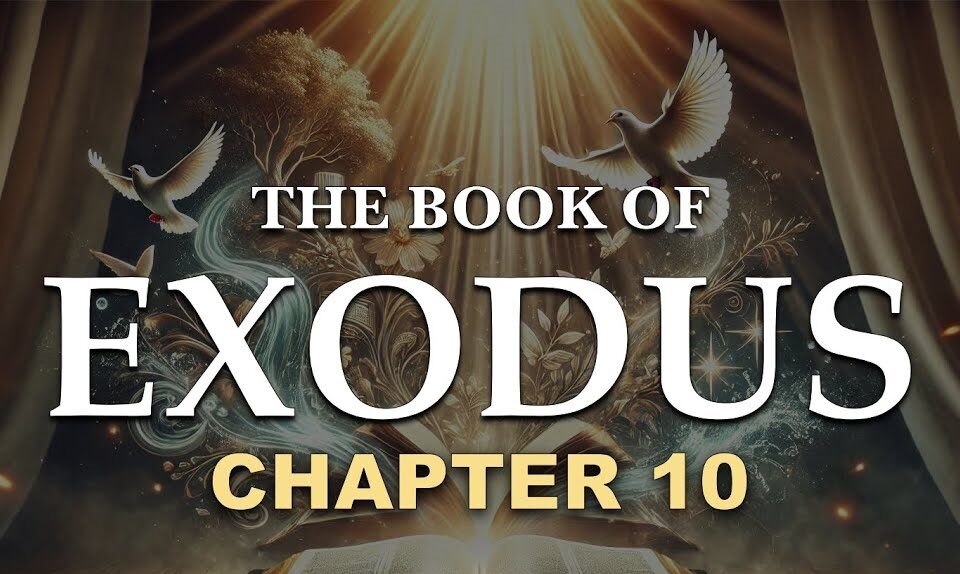Divine Retreat Centre UK – Official Website
The bridegroom is here!
October 25, 2020
How to Walk in the Spirit
November 17, 2020Can someone in a state of sin really hear the voice of God? Does God only speak to preachers and those in religious life or does He also speak to ordinary lay people too? Maybe these are some questions you have thought about? Or maybe you feel as though you have never heard the voice of God or are unable to. But what does the Bible say? In this article we will focus on the calling and life of St Matthew. Specifically, how he was called from a state of sin, the return to his original identity and lastly, his new focus.
The calling of Matthew, the tax collector
In the gospel of Matthew 9:9-13, we are introduced to Matthew. But firstly, who exactly was Matthew and what does he show us? Matthew was a Jewish tax collector who worked for the Romans, also known as the enemies of the Jews. This made Matthew the most hated person as according to the Jewish people, tax collectors were roman representatives. They demanded large amounts of money from Jewish people, giving a small amount to the Romans and keeping the rest for themselves. Matthew, being a Jewish man himself, therefore betrayed his own people for wealth and as a result, was considered as an outcast. This, according to Jewish understanding, made him a great sinner.
Though this was the case, Matthew was called to become one of the twelve disciples. In Matthew 9:9, “As Jesus went on from there, he saw a man named Matthew sitting at the tax collector’s booth. “Follow me,” he told him, and Matthew got up and followed him”. For Jesus, it did not matter what Matthew did or who he was considered to be. Jesus saw past all of it and chose him. This is the same with us. Though we may be the worsts of sinners, though we may have fallen so many times, Jesus chose us and chooses us every day. Jesus was not bothered by the other Jewish disciples, such as Peter and Andrew, who were also betrayed by Matthew. Jesus saw Matthew sitting in the booth and He called him. In the same way, Jesus sees us sitting in our sin and calls us too by name.
So, what does this mean? Jesus not only calls or speaks to the holy, but sinners too. For Him, it doesn’t matter what you have done, it doesn’t matter how many people have rejected you, God chooses you. God not only speaks to the bishops, priests, missionaries, or messengers of God, God speaks to everyone- even sinners.
Returning to our original identity
The Parable of the Prodigal Son (Luke 15:11-32) teaches us an important instruction- returning to our original identity. We know that this parable is a story about a son who took his share of his father’s inheritance and went to ‘enjoy his life’. However, when a famine arose, he was in great difficultly as he had spent everything he had (Luke 15:14). As a result, he became a slave and worked in a pigsty. The irony is that though his father was so rich with many servants, the son chose to serve pigs who had more food than him and were considered to be better than him. However, in Luke 15:17 he started to come back to his senses and decided to go back to his father. He realised where his true identity lied. He realised he was worth much more than pigs and that he was a child of rich father.
What does this mean for us? Our identity is in God, the one who made us. We are His children, despite what we may have done or the place we may be in right now. If you find that you too are in the pigsty just like the prodigal son, all you must do is return to your original identity. Return to the fact that you are God’s child. He knew you before you were born (Jeremiah 1:5) and true freedom lies in Him. Knowing who you truly are will diminish all fear. Both the prodigal son and Matthew were great sinners, yet they both heard the voice of God. Whether you are in the pigsty or in the booth swallowed up by earthy matters, God is speaking to you and calls you to return to Him. The highest position we have is being children of God. So, get up and go back to your root. You are the child of the Most High. This is what sets you free.
The cost of discipleship
Matthew, after returning to his original identity did not have such an easy life. He was a very wealthy man but when Jesus called him, he gave up his job that he valued so much. He left all his money, power, wealth- all to follow Jesus. In fact, many of the early Christians sold all their properties and gave up everything they had to follow Jesus. They were even willing to be tortured and killed for the sake of the gospel. Today times are very different, and martyrdom isn’t as common. We live in a time where we are fortunate enough to practice our faith freely. But that leaves us with a question. What is our cost of discipleship, what are we losing? Or are we trying to look for what we can gain? What we can gain from the church, the priests, the retreats? If so, then we really have gone away from the original Christian faith and we are sitting in the pigsty. Are there any sacrifices we are making when following Jesus or are we following Jesus for the benefits, miracles, and healings? If the miracles and wonders are what’s attracting you then you have a big problem!
All the disciples saw the miracles Jesus did. They saw Him casting out devils, healing lepers, walking on water, raising the dead and many more. Yet, when it came to His crucifixion, they all ran away. The moment crisis hit; they abandoned their faith. Are we too losing faith as soon as we see miracles decrease and crisis increase? Or are we using the pain, using our crosses as a way of converting our ways and focusing on the one who paid it all. The centurion never saw the miracles of Jesus, he only saw Jesus crying out his last words on the cross. But seeing His death and realising the price He paid was what changed the centurion and opened his eyes to see that the Son of God was in front of him. But for us, the moment we see the crosses in our lives, whether it’s a job or money we lose, sickness or family crisis, our faith in God diminishes. We don’t even feel like praying or going to mass. Instead we sit in our doubts and start questioning God.
So, the question we must really reflect on today is, are we willing to take up the cross and follow him or do prefer our way? Do we prefer our comfort zones and want the express way or are we willing to take the way of the cross? Matthew was called from his sin and followed Jesus, but he did not stop there. He was willing to take all the costs that came with it. Just like Matthew and the early Christians, we too have costs of being a disciple. Instead of asking questions on what the church can do for us, we must realise that the church is not a building, but WE are the church. We must therefore act and do what is needed to be done rather than expecting it from someone else.
Shift your focus onto the Kingdom
Lastly, before Matthew was called, he had a different Kingdom in mind. He was too immersed in the things of this world. However, later we see a shift from the Kingdom of this world to the Kingdom of Heaven, the main theme of the gospel of Matthew. This is the same kingdom promised to the Israelites when they were brought to the promise land (Deuteronomy 28:1). Throughout Deuteronomy 28:1-14, it speaks about such wonderful blessings of God. Though, these blessings were related to this world- for protection and happiness in this life. Sadly, this is what the Israelites thought God was talking about when referring to the Kingdom. They thought He was speaking about a worldly kingdom, but this was far from it. God therefore came down in the form of Jesus and gave them a new vision and said “repent, for the kingdom of heaven has come near” (Matthew 4:17).
This was the first message Jesus preached and one of the reasons why Matthew left the tax booth. He left all of his worldly belongings and shifted his focus on the Kingdom of heaven. He knew this world was just temporary and that there was another world waiting for him. He, along with the other disciples, realised that their citizenship was in heaven, as is ours. We do not belong to this world but to heaven. This is where our final destination is, and this is where we will live forever. Where we live now is just a pilgrim we attend for a short time. The length of the pilgrim is unknown to each of us, tomorrow is not guaranteed and so it is time for us to gaze our eyes upon heaven.
So, just like Matthew and the prodigal son, let us be attentive to God’s voice, ask pardon from Him and return to our original identity. In doing so, let us re-shift our focus on what really matters, the Kingdom of Heaven and take up our crosses and follow the one who paid it all.
Thy Kingdom come, thy will be done, here as in heaven.





1 Comment
Thank you so much for the topic” Can God hear the prayer of sinners and can a sinners listen to the voice of God, I used to think
God may not answer or hear my prayer in the state of siin and I used to think I did not get the answers of my prayers may be because I am a sinners.